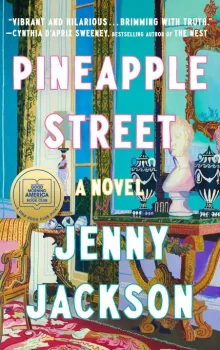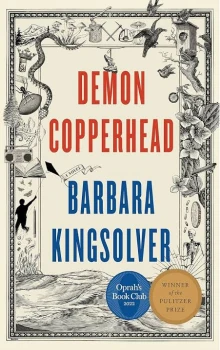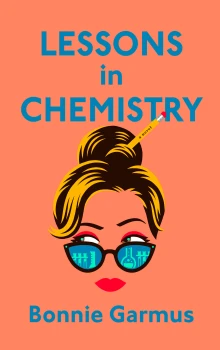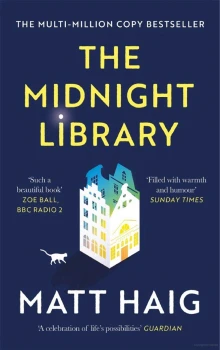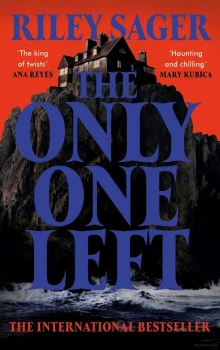SIX
Darley
Darley liked to think that she was easygoing: She ignored foot faults in family tennis, she never sent back food in a restaurant, and she even gritted her teeth and smiled when Malcolm lay down on the couch wearing the same germ-encrusted clothing he’d worn on the plane. There was one thing, however, that made Darley insane with annoyance. White moms at the playground, older squash ladies at the club, even, horrifyingly, some of Darley’s own extended family: they said, “Half-Asian babies are so cute.” Or “I wish I could have a half-Korean baby!” Or “Your kids are so lucky to have such an exotic look.” It made a vein pulse in Darley’s temple. The thought that Poppy and Hatcher were so different from all the other kids these women saw, or that they were “exotic” like lychee nuts imported from the tropics, filled her with fury.
For Darley it was a painful reminder of how very white her world had always been. Although they lived in Brooklyn, their entire apartment building was white. Their circle of friends was nearly all white, their Florida club was all white, and when she looked around Cord and Sasha’s wedding, she could count the guests of color on one hand. While Darley’s parents had loved Malcolm from day one, there were still moments when it was painfully obvious that they only ever hung out with white people: When Tilda pronounced “BIPOC” as “BIP-ock,” when Chip called anything with salsa “ethnic food,” when they referred to R&B, hip-hop, or pop music as “gangster rap.”
When Poppy turned one, Darley and Malcolm threw her a party at the Casino. For Malcolm’s family, the first birthday, the dol, was basically a bigger deal than their wedding. The Kims insisted on paying for the entire thing, hiring caterers and buying Poppy a beautiful traditional Korean outfit, red silk with light green sleeves. They served steak and salmon, they passed the baby around for everyone to hold, and then they put her on a big blanket in the middle of the room for the doljabi. The doljabi was a tradition meant to symbolize the child’s personality. Typically, one would lay out an array of objects, including thread, a pencil or book, and money, illustrating longevity, intelligence, and wealth. Whichever item the child crawled to would represent their prospects. For fun, they also laid out a tennis racket, a toy airplane, a test tube, and a calculator. When Poppy crawled toward the test tube, Malcolm’s father cheered—another chemist in the family! The cheering startled Poppy and she burst into tears, and Darley ran to pick her up. They tried again, but she just sat there and chewed on her sleeve. They scooted the tennis racket closer, zoomed the toy airplane around her head, waved the calculator to get her attention, but she was uninterested. They finally gave up and changed Poppy back into her smocked dress before giving her a piece of cake. Darley, six months pregnant and starving all the time, ate her own and then her daughter’s and hoped nobody was thinking what she was: Oh, Poppy is going to take after her mother and do nothing.
The morning Darley saw Malcolm’s text, still weak and possibly delirious from the stomach flu, her first instinct was denial. There must be some mistake. Nobody would fire Malcolm. She took a shower, dried her hair, cleaned the bathroom, and opened the windows to get rid of any sick smell. She dressed neatly in a navy tank dress, pinched her sallow cheeks, and went out to the kitchen to thank Soon-ja for everything she’d done. Soon-ja made her dry toast and tea, setting it all out on a pretty place mat with a tiny bud vase. As Darley crunched and sipped, they talked quietly about the kids, about the apartment. Darley’s mind was spinning, but she wouldn’t say a word to Malcolm’s mother. She needed to know the whole story first, needed to speak to her husband. She would wait until Malcolm was home so they could talk about it in person. But the fact was, Malcolm was the child of Asian immigrants in the old boys’ club that was banking, and while Darley didn’t know exactly what had happened, she couldn’t stop thinking about his friend Brice and feeling a knot in her stomach.
The previous summer, on a warm Saturday in July, Darley and Malcolm had piled the kids in the car and driven out to an exclusive golf club in Greenwich, Connecticut. For six months, Malcolm had been working back and forth between New York and London, and he had become close friends with another managing director in the Mergers and Acquisitions team, an American named Brice MacDougal, who lived in Greenwich. Brice was also married and had children around the same age, and so, on one of the rare stretches where they were both home, he and Malcolm had made plans to get their families together.
Darley hadn’t been to this golf club before and was immediately startled by how green and manicured everything looked. The suburbs certainly had their appeal. Malcolm had driven the car through stone gates along neat green fairways, long stretches of rolling hills dotted with the occasional golf cart. They parked and Brice met them in front of the dining room and led them out to the pool, where his blond wife was attending to two children in matching light-pink swimsuits.
Darley wasn’t much of a golfer, so she and Brice’s wife had planned to go swimming with the kids while the men played, all meeting up for lunch afterward. The pool was basically empty aside from a few teenagers hanging around the other end, so the kids could splash and scream without disturbing anyone, and Darley had felt herself relax. Brice’s wife was friendly, and once Darley realized she didn’t work either, she was able to enjoy herself. As they stood in the waist-deep water fixing leaky goggles and throwing dive sharks, they chatted about how much their husbands had been gone, how desperately they were looking forward to sending the kids to sleepaway camp, the relative merits of city and country living. Darley hated to admit it, but she had started feeling inadequate around women her age who were managing both kids and careers. It made her feel like she needed to explain herself, to justify spending all that time and money on grad school. With stay-at-home moms it was easier.
When it was time for lunch, Darley had hauled her kids into the pool dressing rooms to change them into dry clothes—a dress-code mandated polo shirt tucked into shorts for Hatcher and a sundress and sandals for Poppy. She herself had a flowy blue-and-white dress that made her feel like she was on vacation in Greece.
They met Malcolm and Brice outside the dining room, where they had staked out a table on the deck under a striped awning. A waiter handed them all oversize menus and Brice talked them through the best choices—the lobster roll, the salmon burger, the BLT with avocado. As they chatted, Darley looked around and felt a strong sense of well-being. The deck was crowded with happy people eating lunch. Yes, they were all in club attire—collared shirts tucked into pants, and yes, they were mostly men—it was a golf club after all—but as she studied the crowd, she realized why it looked so different to her. So many of the faces at the lunch tables were Black, so many of their shirts fruit-punch pink and lime-green. It stood in stark contrast to lunchtime at their various New York clubs, where most of the time the only Black or Brown faces were those of the servers. Was Greenwich just a more progressive place than Brooklyn Heights?
The children all drank lemonade out of cups with plastic straws, they demolished all their French fries and mostly ignored their hamburgers, Darley sipped a glass of white wine, and Brice told them all a funny story about walking into the wrong hotel room in London and accidentally catching their boss in his towel. (How could a key card work for a different room? It terrified Darley to imagine it.)
There was a new analyst on their team at work, a twenty-two-year-old named Chuck Vanderbeer, who was also a member of the country club. Brice had been there the first time Chuck came to see the golf course. There had been an accident the previous summer—an older gentleman had suffered a heart attack at the wheel of his Volvo and crashed his car into the dining room, where it burst into flames and injured three people. Since then, the club had decided it was unsafe to have cars quite so close to the building, so they had blocked that part of the driveway with a chain and asked members to park in the lot and walk the fifty paces to the entrance along the stone path. When Chuck Vanderbeer arrived in a black SUV, his driver paused by the gate, climbed out of the car, removed the chain, and drove Chuck right up to the door. And yet, somehow, he was still voted in by the membership committee. His family was so well connected he had at least seven sponsors in the club.
At the bank he had quickly distinguished himself, not with his work, but by nicknaming himself the “Rock Star” and arranging lunches with all the division heads—Malcolm’s and Brice’s bosses. Rumor had it that he’d been thrown out of Deerfield for setting off fireworks, but his father, a big shot in private equity, still got him into Dartmouth. The thing was, the kid was a complete zero. He left a deal book on a plane—an offense that would render anyone else unceremoniously fired, and he was barely reprimanded. He took an Ambien on a flight and was still visibly drunk from it when they walked into their meeting in Dubai. Malcolm had once caught Chuck staring at himself in the mirror of the men’s room, smoothing his hair and smiling like a psychopath.
Brice and Malcolm agreed the kid was a total liability and hated that they were saddled with him on the team. They were stuck in the middle of a nepotism sandwich, their bosses pleased to have a Vanderbeer on the roster, but privately happy not to manage him directly.
Darley had laughed at Brice’s stories and ordered a second drink. It was the perfect Saturday afternoon, a million times more fun than most gatherings with her husband’s colleagues, and it made her hopeful. Maybe they could spend more time together with Brice’s family. Maybe they could even consider moving out to Greenwich. She wondered if she had been wearing blinders, always feeling like Brooklyn was the best home for them, like Brooklyn was more liberal and diverse than the suburbs.
They were finishing lunch when a microphone squealed and a sunburned man in a pale-yellow polo took the stage. “Good afternoon, golfers. We’re about to get going with the brief program here in just a few minutes.”
“Oh, sorry guys,” Brice apologized. “It’s going to be annoying to listen to this. Maybe we can finish up and go hang out by the pool for a bit.”
“What’s going on?” Darley asked.
“Oh, it’s Caddy Appreciation Day, so they’re doing an awards ceremony.”
“Caddy Appreciation Day?”
“Yeah, they invite all the caddies to join them for lunch and give out funny prizes.”
“Oh.” Understanding washed over Darley. One by one the Black men at each table got up to receive awards, shaking hands with the man in yellow before returning to their seats. They weren’t members of the club at all. They worked there. The club was just as white as her own.
When Malcolm got home from the airport it was almost lunchtime. He walked into the apartment, dropped his laptop on the counter, and poured himself three fingers of Tanqueray without uttering a word.
“Hey, love.” Darley came up behind him and wrapped her arms around his middle. His button-down shirt was creased, and he smelled slightly of sweat after two nights on planes. Malcolm didn’t say anything, and Darley pressed her face against his back, felt him swallow and shudder slightly. “What happened?”
“Some absolute bullshit is what happened,” Malcolm replied quietly. He put his glass in the sink and let Darley lead him into the living room to talk.
Thirty-six hours earlier Malcolm had flown to Rio to make the final board presentation to Azul, a Brazilian airline based outside of São Paulo. The presentation would be followed by a signing with American Airlines, whereby they would purchase 10 percent of Azul, giving them a stronger foothold in South America. When Malcolm arrived at JFK and reviewed his flight itinerary he sighed. The plane was a 767-300ER, an old model with narrow flatbeds, no seat-back TV, and, worst of all, no wi-fi. It was annoying that the route he’d flown dozens of times in the past year had the worst planes. He said hello to the check-in agent, who asked after Darley and the kids. The flight attendant working the business-class cabin gave his shoulder a little squeeze hello. Malcolm spent so much time at JFK he basically considered the flight attendants, lounge attendants, and gate agents his colleagues.
As the plane lined up on runway 31L, Malcolm listened to the twin engines spooling up, and in spite of himself, he felt his heart skip happily, even after all this time. He took a final glance at his in-box, then at the wallpaper on his phone—Darley and the kids at the U.S. Open—and powered it off for the flight. But when he landed ten hours later and turned his phone back on, his whole world changed.
Malcolm had called it from day one that Chuck Vanderbeer would be a disaster; he just hadn’t realized that the self-proclaimed Rock Star of Deutsche Bank Aviation Group would also pull him down as he crashed and burned. Chuck worked side by side with Malcolm, Brice, and their team putting together deals, pitching mergers between international airlines, privy to the most sensitive financial information about these companies and their futures. He then, unknown to anyone in his professional life, spent his nights drinking at the bar at Papillon in Midtown and bragging to bored young women about the deals he was landing. Unfortunately, the woman who seemed utterly fascinated by the Rock Star’s tales of banking derring-do happened to be a financial reporter for CNBC and produced a story about the likely investment by American Airlines in Azul. As soon as the story hit cable news, Azul killed the deal and left Deutsche Bank holding the bag.
Malcolm had more than three hundred emails, a dozen frantic voicemails, and sixty-five text messages, mostly from Brice. He staggered down the jetway in Rio, scrolling through message after message. The deal he had worked on for nearly a year was dead. The American Airlines management team hadn’t even bothered boarding their connecting flight from Miami. Any chance Malcolm had at damage control was long gone. Both Chuck and Malcolm were fired, Chuck for leaking the story and Malcolm for standing too close to the little fool.
But you didn’t do anything wrong!” Darley cried indignantly. “Chuck was the leak! You had nothing to do with it!”
“I was unreachable,” Malcolm said with a grimace. “When the news broke, I was in the air with no wi-fi. The entire deal was crumbling and I was lying on a flatbed eating warm mixed nuts.”
“This is completely unfair,” Darley vented. “What about Brice? Is Brice being fired?”
“No, Brice is fine. While I was offline, Brice was on the ground managing the narrative. He protected himself.”
“Why? He was on the same team! He knew Chuck even before you did!”
“Brice has more friends in the organization than I do. He has the banking pedigree.” Malcolm kicked the leg of the chair.
“Brice should have fought for you too!”
“Well, he didn’t.”
“That little shit. They are both little shits,” Darley spat.
“I just can’t believe they all let me take the fall.” Malcolm shook his head.
“It’s their loss, Malcolm. We’ll be okay. You’ll make some calls and set up some interviews. You’ll be working again in no time.”
“Maybe.” Malcolm looked broken, like a dishonored gladiator in defeat.
“They’re idiots for letting you go.” Darley curled up in Malcolm’s lap and buried her face in his neck. It made her so upset that she wasn’t able to protect him. That the Brices of the world had scores of family friends to vouch for them and Malcolm didn’t have anyone. Sure, her father was connected in the real estate world, and if you wanted to throw a Moroccan-themed dinner for fifty at a moment’s notice her mother had the hookup for a caterer and a florist, but that wasn’t going to do Malcolm any good.
The whole thing reminded Darley of the time her high school friend Allen Yang applied to be a member of the Fiftieth Club. He had the sponsors, he had the letters, he certainly had the money, and when he went in for the faux-casual interview to drink scotch with the membership committee in the club lounge, he felt like he’d nailed it. Then his application was denied. Darley knew it was racism. There was no possible other reason. But nobody had explicitly said it, so Allen had to let it ride. How much of Malcolm’s ousting was because he was in the wrong place at the wrong time, and how much was because he wasn’t an old boy with a last name like Dimon, Moynihan, or Sloan? Nobody said, “We’re firing you because you don’t have a white dad to stick up for you,” but to Darley it was clear as day.
Malcolm spent the next few weeks inviting old business school friends to lunch, reaching out to colleagues from his early investment banking days, and taking meetings with anyone who’d see him. While Chuck Vanderbeer quickly failed up, his private equity father securing him an analyst position at Apollo, it was evident Malcolm’s name had been dragged in the dirt. As far as banking was concerned, Malcolm was radioactive. His friends and acquaintances would order their steak, always rare, and before even taking their first sip of iced tea asked, “What the hell happened with that Azul deal?” Everyone knew, and somehow they thought it was his fault. It didn’t matter that he hadn’t done anything wrong; he was tainted and was unceremoniously thrown out of the Masters of the Universe club.
When headhunters started calling, Darley was optimistic. “See, doll? Lots of people want you.”
But the positions they offered were at third-tier firms, horrible banks where he’d have no hope of getting back into aviation. Malcolm just couldn’t stomach the thought, couldn’t go from being a highflier to a serf. If he took one of these jobs, he’d be spending the majority of his days commuting to and from Midwestern industrial cities, connecting through Chicago, sitting in economy class, spending his nights in Red Roof Inns where the beds’ polyester linens were designed to hide stains.
Darley comforted him, pointing out how many bankers became briefly infamous for far worse—the twenty-six-year-old kid who lost his company $500 million in unauthorized trades only to do the same thing again a year later. He somehow still had a job. (It didn’t hurt that he was descended from several first families of Virginia.) The guy who hid $2.6 billion in losses on copper futures from his bank in Tokyo. The rogue trader who bankrupted Barings Bank in 1995.
“You’re not making me feel better,” Malcolm complained. “Those guys were idiots.”
“You’re the smartest person I know,” Darley told him. She meant it. “You’ll land a better job.”
“If I were so smart, I wouldn’t have missed Poppy and Hatcher’s childhood to make money for a bank that kicked me to the curb,” he said glumly.
When people asked Darley how she and Malcolm met, Darley simply said “at business school,” and that was enough for most people, but the truth was that she had sought Malcolm out, had wanted him before she’d even laid eyes on him. Darley had spent two years as an analyst at Morgan Stanley between Yale and Stanford. An associate had shown her Malcolm’s blog about airlines, and when she realized he was also going to be enrolled at Stanford too, she felt the way Kate Middleton must have felt when she realized that Prince William had switched from the University of Edinburgh to St Andrews. He would be hers. That was because Darley had a bit of a side gig of her own. Through perfectly legal means she had managed to figure out the algorithm for JetBlue ticketing and had been trading airline stocks based on their consumer volume year over year. Every month she bought a ticket at 12:01 on the first and then 11:59 on the thirtieth or thirty-first. Their numbering system was stupidly straightforward, and in that way she could figure out how many tickets they had sold. She wasn’t playing with big money; she was day-trading for fun and just to prove that she’d cracked it. When she confessed this to Malcolm over tacos and margaritas on their first date, it was as though she had told him she had been Bo Derek’s body double or could do a split, it was that sexy. She had already been factoring in the fluctuating costs of fuel, but with Malcolm they managed to also consider cost savings and expenditures based on routes and jets leased to other airlines. Although JetBlue changed their ticketing codes a year later and Darley’s loophole closed, the deal was done: Malcolm had met his equal, a partner for life who loved him for exactly who he was, and Darley had bagged her Prince William.

